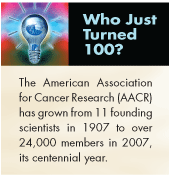Vitamin E-Based Paclitaxel May Be Less Neurotoxic
A novel vitamin E-based paclitaxel emulsion may be less neurotoxic than the currently approved taxanes, including cremophor-based paclitaxel (Taxol), nab-paclitaxel (albumin-bound) (Abraxane), and docetaxel (Taxotere)
LOS ANGELESA novel vitamin E-based paclitaxel emulsion may be less neurotoxic than the currently approved taxanes, including cremophor-based paclitaxel (Taxol), nab-paclitaxel (albumin-bound) (Abraxane), and docetaxel (Taxotere), according to a preclinical study reported at the 2007 American Association for Cancer Research annual meeting (abstract 1563).
The compound, called Tocosol pacli-taxel (Sonus Pharmaceuticals, Bothell, Washington), was evaluated in rats, which are considered a good animal model for taxane-induced peripheral neuropathy. It was compared with the three other taxanes given once a week for 6 weeks, followed by a 4-week recovery period.

All treatments resulted in some degree of peripheral neuropathy, but vitamin E paclitaxel was associated with less nerve fiber degeneration than equivalent doses of the other taxanes, reported Lauren M. Tatalick, DVM, PhD, of Sonus. The vitamin E paclitaxel-treated animals also suffered the least effects in terms of body weight change, roto-rod motor coordination (ability to stay on a rod), and 10-week recovery of sensory nerve conduction velocity (100 mg/m2 dose).
Compared with currently marketed taxane products, vitamin E paclitaxel allows for a shorter infusion time (15 minutes) and requires only minimal preparation prior to administration, Dr. Tatalick said.
Vitamin E paclitaxel is currently being compared with cremophor paclitaxel in a phase III trial of patients with metastatic breast cancer. Enrollment is complete, and adjudicated data are expected in the third quarter of 2007.